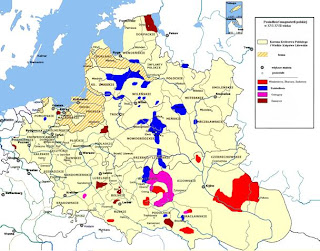 The movement of peasant-artisan household enterprises from petty commodity production to petty capitalism may be significantly affected by family demographic and life-cycle factors through their impact upon productive capacity, capital accumulation and material wealth. This finding supports Lenin's thesis that family cooperation is the foundation of capitalist cooperation, and negates Chayanov's labor-consumer balance theory of the peasant family economy with its emphasis on simple reproduction.
The movement of peasant-artisan household enterprises from petty commodity production to petty capitalism may be significantly affected by family demographic and life-cycle factors through their impact upon productive capacity, capital accumulation and material wealth. This finding supports Lenin's thesis that family cooperation is the foundation of capitalist cooperation, and negates Chayanov's labor-consumer balance theory of the peasant family economy with its emphasis on simple reproduction.A Marxist concept which refers to a form of production in which: the producer has ownership or de facto possession of the means of production; the goods or services produced are commodity tips (that is, sold through the market); the producer does not systematically hire wage workers, but may use unpaid family labour; the scale of production is small and there is little capital accumulation. This concept is widely used in the study of peasants, family farmers, and artisans. See also simple commodity production.
petty commodity producers in the Indonesian city of Ujung Pandang. It is argued that in order to understand the reasons for the stagnation of petty production in the city, one must appreciate both the internal structure of petty production and also the relationship between petty production and the capitalist and peasant sectors of the economy. The transfer of economic surplus out of petty commodity production which characterises these relations is important to an understanding of the poverty of the petty producers in the city, whereas the class formation this fosters perpetuates the underdeveloped character of the economy.
No comments:
Post a Comment